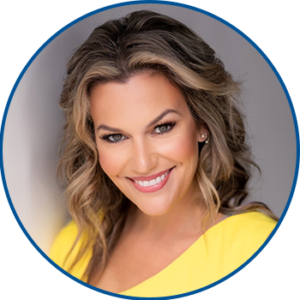Women Leaders in Pharma Interview Series
Women Leaders in Pharma Interview Series
Interview With Caitlin Wege
About Caitlin
Caitlin Wege is Board Chair of Contract Pharmaceuticals Limited and its sister subsidiary, Glasshouse Pharmaceuticals. She is also a partner at MooDoos Investments, a private family-owned investment fund that invests in early-stage companies throughout the US and Canada. Caitlin is an experienced investor and, through her fund, invests in several industries, including life sciences, manufacturing, and education technology. In addition to CPL and Glasshouse, she serves on the board of several portfolio companies.
Interview
How do women lead differently?
- Women have historically been outsiders in a male-dominated workforce. I’ve observed through my own experience that leadership style and how women show up in the workplace has a lot to do with women needing to adapt to the environment around them to achieve success. Typically, we do not have access to the same resources as our male counterparts and we have to work harder to build relationships; therefore, women need to be resourceful and creative to get things done. Throughout my career I’ve had to ask for a lot of help, find workarounds, and build consensuses, resulting in a more collaborative and solution-oriented leader. And I’ve seen this time and again with my female counterparts. I’ve also noticed that women tend to over-prepare. I know that I’m constantly focusing on preparation because women are still scrutinized more than men. I still feel the need to prove myself in certain situations.
What surprised you most about your career?
- I’ve been involved in a variety of industries in my career. As the boundaries of technology and life sciences continue to blur, I’ve found that it’s helpful to cross-pollinate best practices from other industries to see how they can be applied and leveraged to create value. What has surprised me is that I’ve unintentionally created a toolbox and network to help me think creatively about the company’s strategic future. I used to believe that you had to be a master in one space to succeed, but I see more and more that outside and diverse perspectives are the keys to staying competitive.
What have been your career learnings during COVID? What are you going to carry forward in the “new normal”/ post COVID?
- More than 1.4 million moms left the workforce over the last year—and that doesn’t include moms who were laid off. Parents in general suffered, but moms had a tough year. With daycares shuttered and families cut off from each other, parents had to do it all—teach, cook, entertain, clean, and work full-time. Even today, domestic responsibilities are still inequitable, and women took the brunt. But the absence of accessible childcare and schooling reminded me how precious caretakers and our community are. It showed me that we need to ask for more help as parents and not feel guilty. And that kids need more time with their peers and their expanded community to thrive. This appreciation has inspired me to create more flexibility in my day, to focus on managing my energy, and to preserve energy for things that bring me joy outside of work. Pre-COVID, so much of my fulfillment was dependent on work; I’ve learned to find fulfillment outside of work as well. It has improved how I show up as a leader and reignited a passion for my work.
If applicable, how did you become a mentor? What advice would you give to someone interested in becoming a mentor?
- I have participated in formal mentorships programs through professional organizations and volunteer programs. But you don’t need to go through professional organizations or even have a “formal” mentor relationship to benefit as mentor or mentee. If you are interested in mentoring, consider how much time you have to give before agreeing to mentor, and when you are working with a mentee, it’s easy to want to solve all of their problems for them, but the best mentors share relevant experiences and guide by example.
What is the one piece of advice that you would give to women in the Pharma Industry that will help them become better leaders?
- Pleasant experiences make life delightful, but challenging experiences lead to growth. My career has been all about pushing the boundaries of my comfort zone. I’ve had no choice but to take on responsibilities and roles that I didn’t at first feel qualified for, but with each new opportunity, I leaned in, and even though I met many challenges, each time, I realized that this is where the magic and the growth happens. Resiliency is critical for a woman in this industry, and I believe you can only gain that by pushing your limits and forging new paths when necessary. My advice is to take the leap into a new position and seize opportunities when they are available.

